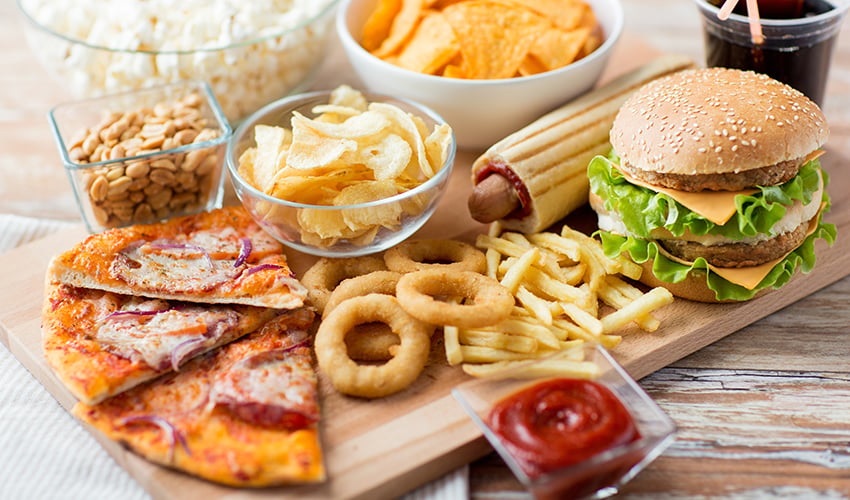
27 Jul What are Natural vs. Artificial Foods?
In today’s fast-paced world, the choices we make about what we eat play a crucial role in our overall health and well-being. With an abundance of food options available, it’s essential to understand the difference between natural and artificial foods and how they impact our bodies. In this comprehensive guide, we’ll delve into the world of natural and artificial foods, exploring their definitions, benefits, drawbacks, and the best ways to incorporate them into our diets for a healthier lifestyle. This article is provided by healtharticlesmagazine.com
What Defines Natural Foods?
Natural foods refer to items that come directly from nature without any significant alterations or modifications. These foods are minimally processed and are free from artificial additives, colors, flavors, or synthetic chemicals. Natural foods are a gift from Mother Nature, providing us with essential nutrients, vitamins, and minerals that support our well-being.
Some examples of natural foods include:
Fruits and Vegetables
Fruits and vegetables are packed with essential nutrients, dietary fiber, and antioxidants that promote good health. They come in a variety of vibrant colors, each offering unique benefits. From the vitamin C-rich citrus fruits to the potassium-loaded bananas, incorporating a wide range of fresh, natural produce into our diets is a fantastic way to nourish our bodies.
Whole Grains
Whole grains, such as brown rice, quinoa, oats, and whole wheat, retain their bran, germ, and endosperm, making them a rich source of fiber and nutrients. Unlike refined grains found in many processed foods, whole grains provide sustained energy and contribute to better digestive health.
Lean Proteins
Natural proteins, like those found in lean meats, poultry, fish, and legumes, play a crucial role in building and repairing tissues. They are a source of essential amino acids that our bodies need for optimal function.
Nuts and Seeds
Nuts and seeds are nutritional powerhouses, offering a combination of healthy fats, protein, vitamins, and minerals. Almonds, walnuts, chia seeds, and flaxseeds are just a few examples of these nutritious options.
The Rise of Artificial Foods
With technological advancements and changes in food production methods, artificial foods have become increasingly prevalent in our modern diets. These are heavily processed products created to resemble natural foods but often contain synthetic ingredients and additives for flavor, texture, and extended shelf life.
Some examples of artificial foods include:
Processed Snacks
Snack foods like chips, cookies, and candies are commonly associated with artificial ingredients, high levels of added sugars, unhealthy fats, and excessive sodium. These products may provide instant gratification, but they can have detrimental effects on our health if consumed excessively.
Fast Food
Fast food is notorious for its convenience and affordability but is often loaded with artificial additives, preservatives, and unhealthy fats. Regular consumption of fast food has been linked to obesity and an increased risk of chronic health issues.
Artificial Sweeteners
Artificial sweeteners are synthetic sugar substitutes commonly found in diet sodas, low-calorie desserts, and sugar-free products. While they provide sweetness without the added calories, some studies suggest potential health risks associated with their long-term use.
Preservatives and Additives
Many processed foods contain a range of preservatives and additives to enhance taste, appearance, and shelf life. However, these artificial substances may not offer any nutritional value and could have adverse effects on health.
The Impact on Health
The choices we make between natural and artificial foods can significantly impact our overall health and well-being. Here’s a closer look at how these two types of foods affect our bodies:
Natural Foods and Health Benefits
Consuming a diet rich in natural foods can provide numerous health benefits:
1. Nutrient-Rich
Natural foods are brimming with essential vitamins, minerals, and phytonutrients that support various bodily functions, boost our immune systems, and promote healthy growth and development.
2. Improved Digestive Health
Fiber-rich natural foods, such as fruits, vegetables, and whole grains, aid digestion and help maintain a healthy gut microbiome.
3. Sustained Energy
Whole foods provide a steady release of energy, avoiding the spikes and crashes associated with artificial sugars and refined carbohydrates.
4. Weight Management
A diet based on natural foods can aid in weight management, as these options are typically lower in calories and unhealthy fats.
Artificial Foods and Health Concerns
On the other hand, excessive consumption of artificial foods may lead to various health issues:
1. Obesity and Metabolic Syndrome
Many artificial foods are high in calories, unhealthy fats, and sugars, contributing to weight gain and an increased risk of metabolic syndrome.
2. Nutrient Deficiencies
Artificial foods often lack the essential nutrients found in natural options, leading to potential deficiencies and health imbalances.
3. Increased Risk of Chronic Diseases
Regularly consuming artificial foods has been associated with an increased risk of developing chronic health conditions like diabetes, heart disease, and certain types of cancer.
4. Digestive Discomfort
The synthetic additives and preservatives in artificial foods may lead to digestive issues and discomfort for some individuals.
Incorporating Natural Foods into Your Diet
Now that we understand the significant benefits of natural foods, let’s explore some practical tips for incorporating them into our daily diets:
1. Shop the Perimeter
When grocery shopping, focus on the perimeter of the store, where you’ll find fresh produce, lean proteins, and whole grains. The inner aisles are often stocked with processed and artificial foods.
2. Meal Prepping
Preparing meals at home allows you to control the ingredients and choose natural, wholesome options. Try batch cooking and freezing meals for busy days.
3. Experiment with Plant-Based Meals
Incorporate more plant-based meals into your diet. Vegetables, legumes, and whole grains offer a wealth of nutrients and flavor.
4. Read Labels
When purchasing packaged foods, read labels carefully. Look for products with simple, recognizable ingredients and minimal added sugars and preservatives.
5. Stay Hydrated
Water is the best beverage choice to stay hydrated and avoid sugary, artificial drinks. You can also infuse water with natural flavors by adding slices of fruits and herbs.
Finding Balance
While it’s essential to prioritize natural foods for their nutritional benefits, the occasional indulgence in artificial foods is perfectly acceptable. Finding a balance between the two can help you enjoy your favorite treats without compromising your overall health.
In Conclusion
Choosing natural foods over artificial alternatives is a powerful step towards a healthier and more vibrant life. By nourishing our bodies with nutrient-dense options straight from nature, we can support our well-being and reduce the risk of chronic diseases. Embrace the richness of natural foods, experiment with new recipes, and savor the goodness they bring to your plate.
Remember, every small change in your eating habits can make a significant difference in your health and happiness. So, let’s embark on this journey together, one delicious and nourishing bite at a time.


Sorry, the comment form is closed at this time.